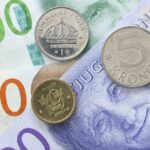Copper swung between gains and losses on Friday as grim demand prospects in Europe and China limited gains amid positive economic data from the U.S.
On the Comex division of the New York Mercantile Exchange, copper futures for September delivery traded at $3.147 a pound at 11:57 GMT, up 0.49% on the day. Prices fluctuated between days high and low at $3.161 and $3.113 a pound respectively. The industrial metal edged higher during the early European session after which it slipped and traded on the downside, followed by a rebound upwards in late hours of the session. Copper fell five days out of six over weak demand prospects, mainly influenced by the cooling Chinese economy, the worlds top consumer. So far this week, the metal has declined 0.2% after advancing 2.75% the previous one.
Copper drew support yesterday as positive U.S. data pointed at continuing economic recovery. The U.S. Labor Department said in its report that fewer people than expected filed for unemployment benefits last week, compared to the previous one. Initial Jobless Claims during the week ending July 13 fell to 334 000, exceeding expectations of a drop to 345 000 from the preceding week’s downward revised reading of 358 000.
The four-week moving average fell by 5 250 to 346 000, down from the previous week’s revised average of 351 250.
Meanwhile, Philadelphia Fed Index also surprised market players. The indicator surged to 19.8, the highest since March 2011, surpassing analysts’ projections for a drop to 8.0 from May’s 12.5 reading. Of the 82 S&P 500 members that have released earnings so far this season, 73% surpassed analysts expectations, while 52% have beaten on sales.
Copper, like all dollar-priced commodities, drew support by the current outlook of Feds Quantitative Easing program. The Fed chairman said on Wednesday in remarks prior to his statement that Fed’s monetary stimulus is not on a “preset course” and reiterated his opinion from last week that the U.S. economy still needs an accommodative monetary policy in the foreseeable future.
“I emphasize that, because our asset purchases depend on economic and financial developments, they are by no means on a preset course,” Bernanke said. He stated that the central bank still expects to start winding down its monetary easing program by the end of the year and bring it to an end by mid-2014, if the required recovery signs are at hand. However, he left open an option for changing that plan if the economic situation shifts towards negative.
Following Bernanke’s testimony, the dollar index, which tracks the greenback’s performance against a basket of six major peers, retreated from last week’s three-year high, marking a 1.87% weekly decline. This week, the U.S. currency gauge has plunged 0.39% so far. On Friday, the dollar index for September settlement traded at 82.78 at 11:52 GMT, down 0.20% on the day. Prices held in range between day’s high and low of 83.06 and 82.63 respectively.
However, gains were limited amid concern over demand in Europe and China, the worlds biggest consumer that accounts for 40% of global consumption. China received numerous downward revisions of its GDP growth forecast in the past couple of months and most of the countrys key economic indicators showed worse readings then previous periods. Meanwhile, Europe keeps struggling with recession. The single-currency bloc recorded a surge in its unemployment rate in May to 12.2%, while factory orders in the unions leading economy Germany unexpectedly fell by 2% in May year-on-year, against expectations for a 0.1% increase.
James Marks, head of global metals at Xconnect Trading Ltd., said for Bloomberg: “Macro concerns persist, especially in regards to China, where widespread bond downgrades are highlighting consistent credit concerns over firms with ties to state or local governments. Europe continues to spiral into an ever-increasing reliance on bailouts as unemployment dents any consumer activity.”





